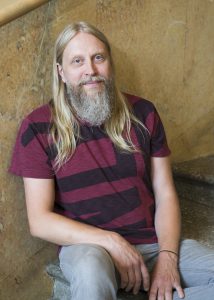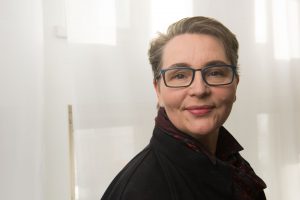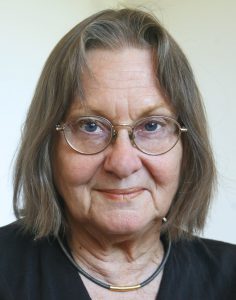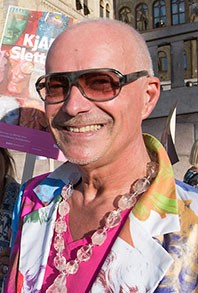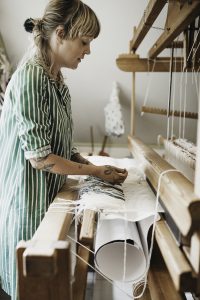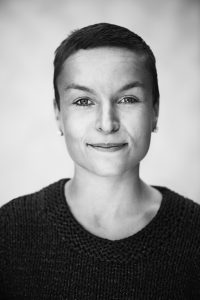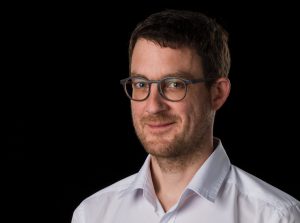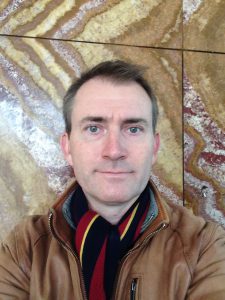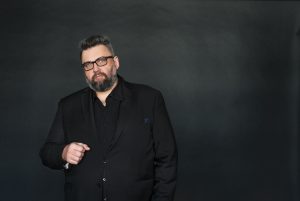September 13th, 2019
Design Museum Helsinki
What is the meaning of Bauhaus in the Nordic countries and how does it relate to Nordic design and architecture today? Is there a mutual philosophy and a shared history or should we see them as separate worlds? These questions will be dealt with in a one-day symposium that will be organized on September Friday 13th at the Design Museum Helsinki.
Just like Nordic Design, the term Bauhaus indicates modern, functional and democratic design. The centennial of the German art school Bauhaus (1919–33) gives an opportunity to look at this link closer and search for influences, parallels and differences. The symposium is part of the program for the Fokus Bauhaus (19.8.2019-2.2.2020) intervention exhibition in the Design Museum’s permanent collection exhibition Utopia Now – The Story of Finnish Design. The curators of the exhibition are Julia Meer from Berlin and Julia Kartesalo from Helsinki.
Fokus Bauhaus Symposium will be organised jointly by Design Museum Helsinki and the Museum of Finnish Architecture with support from the Goethe-Institut Finnland and Estrid Ericsons Stiftelse.
PROGRAMME
12.00-12.45 Pre Symposium programme
Possibility to participate in open workshop at Design Museum:
WeavingKiosk featuring Emelie Röndahl: “What can I know that you know about weaving?”
12.45 Opening words by museum director Jukka Savolainen, Design Museum Helsinki
13.00–14:30 Panel: NETWORKS AND TRANSFORMATIONS
INTRODUCTION:
Bauhaus in Finland? – In search of the (missing) link
Juhana Lahti, PhD, Head of Information Services and Research, Museum of Finnish Architecture
Leena Svinhufvud, PhD, Educational Curator, Head of Learning, Design Museum Helsinki
PRESENTATIONS:
Three Swedish architects traveled to Dessau. What impact did this have on Sweden?
Kerstin Wickman, Professor emerita in design and craft history, Konstfack – University College of Arts, Crafts and Design, Stockholm
The Bauhaus Weaver and Textile designer Otti Berger (1898-1944/45) and her Scandinavian connections
Widar Halén, PhD, Senior Researcher, National Museum of Art, Architecture and Design, Oslo
“What can I know that you know about weaving?”
Rosa Tolnov Clausen, Textile designer, PhD candidate at HDK – Academy of Design and Crafts, Gothenburg
Emelie Röndahl, Textile artist, PhD candidate at HDK – Academy of Design and Crafts, Gothenburg
Coffee break
Visit to exhibition the Fokus Bauhaus exhibition, Design Museum
15.15–16:45 Panel: BRANDING AND MARKETING
INTRODUCTION:
Buy buy Bauhaus, HAY New Nordic
Julia Meer, PhD, designer and design historian
PRESENTATIONS:
Iittala, Artek and Lego – The Visual Rhetorics of Nordic Brands
Arne Scheuermann, PhD., Professor at Bern University of the Arts HKB
Alvar Aalto as a brand
Tommi Lindh, Managing Director, Alvar Aalto Foundation
Affordable Luxury? Marketing everyday design – from Bauhaus to New Nordic
Anders V. Munch, PhD., Professor in Design Culture, University of Southern Denmark
17:00-18:00 Visit the Museum of Finnish Architecture
Registration to the symposium: info@designmuseum.fi
PRESENTATORS
Juhana Lahti is an art historian and holds a PhD at the University of Helsinki (2006, with a title of docent 2019). Lahti works currently as the Head of Information Services and Research at the Museum of Finnish Architecture (MFA) in Helsinki. In his research and publications Lahti has focused on the history of modern architecture and planning, especially on the post Second World War decades. He is also interested in questions related to digital paradigm shift in culture. Previously Lahti has worked in different positions at the MFA, University of Helsinki and Finnish Foundation for the Visual Arts in New York City.
Leena Svinhufvud is Educational Curator, Head of Learning at Design Museum Helsinki since 1998. She holds a PhD in Art History from the University of Helsinki (2009, title of docent 2014) with doctoral dissertation about Finnish textile design of the 1920s and 1930s. She has published widely on Finnish textile history, most recently a book on Greta Skogster-Lehtinen (2019, with Päikki Priha) and curated several museum exhibitions, for example Ryijy! The Finnish Ryijy-Rug (Design Museum Helsinki 2009) and Loja Saarinen – Art and Life at Hvitträsk and Cranbrook (Hvitträsk Museum 2014). Her research topics include for example craft tradition, entrepreneurship and women designers.
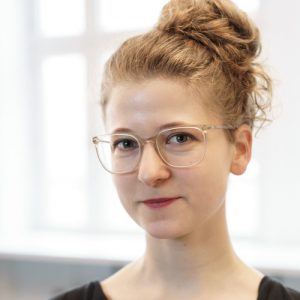
Julia Meer, PhD, is designer and design historian. She majored in Communication Design and earned her doctorate with a study on the reception of “New Typography” and the professionalization of the design discipline. She co-edited the book “Women in Graphic Design 1880–2012” (2012) and has researched the reception of the Bauhaus. Currently, she is based in Berlin.
Kerstin Wickman is professor emeritus in design and craft history, Konstfack (University College of Arts, Crafts and Design, Stockholm). She has lectured about Swedish and Scandinavian design and craft since 1970’s in around 20 countries. In 1967 she started to work with Form, the magazine of Swedish Society of Crafts and Design (Svensk Form) and was design editor for this publication in 1973-1999. She has written numerous articles for Swedish and international design and craft magazines and has contributed as editor and writer to around 35 books, the latest one is A&E Design from 2018. Kerstin is member of many craft and design juries and some boards.
Widar Halén, PhD, was until recently Director of Design and Decorative Arts at The National Museum in Oslo, and is now Senior researcher. He earned his doctorate at Oxford on the first industrial designer Christopher Dresser, and has published extensively on him, as well as on Japonsime, Scandinavian Design, Norwegian design and recently on “Marianne Brandt, Bauhaus and Norway” and forthcoming article on “The Bauhaus Weaver and Textile Designer Otti Berger (1898-1944/45): her Scandinavian connections and the tragic end of her career.”
Emelie Röndahl, Textile artist, PhD candidate at HDK – Academy of Design and Crafts, Gothenburg. I am a weaving artist undertaking PhD studies in craft. In my research I reflects on time, attention, skill and duration departing from the rya knot. The project’s written text and rya weaving are made from a personal perspective structured around my interest in subjects of labour, history and time-consuming activity. The project also aims to explore methods on solitary versus collaborative weaving practices. My current work method transforms digital pixel into rya knots.
Rosa Tolnov Clausen, Textile designer, PhD candidate at HDK – Academy of Design and Crafts, Gothenburg
My creative practice oscillates between the fields of craft and design. I create physical spaces about the practice of handweaving, using craft as a catalyst for physical, social and creative interaction, and a pause in the contemporary urban every day. I challenge notions about hand weaving as a time- and space-consuming craft requiring high technical skill. My current PhD research at HDK seeks to understand why today we should continue weaving, when the production of textiles as use objects can be achieved more quickly and cheaply by the industry.
Arne Scheuermann, PhD, is Professor of Design Theory at the Bern University of the Arts HKB where he leads the Research Unit Communication Design. His research interests embrace the theory, practice and history of visual rhetoric, and the impact of communication design in today’s society. Publications include for example Zur Theorie des Filmemachens (München 2009) and Design als Rhetorik (Basel 2008, with Gesche Joost) and “Handbuch Medienrhetorik” (with Francesca Vidal, 2016). He is a member of several Editorial and Advisory Boards such as “Design Research”, “Journal of Communication Design,” and “Sprache für die Form,” and advises various companies on questions of visual rhetoric. Since 2014 he is president of the Swiss Design Network SDN, which gathers the Swiss design research institutions. His recent research explores the implications of visual rhetoric in areas of health care, counter-terrorism, and Lego.
Anders V. Munch, PhD, is professor in Design Culture, University of Southern Denmark. His PhD-dissertation was on Adolf Loos (German version Der stillose Stil. Adolf Loos, 2005) and his postdoctoral dissertation from 2012 is called Fra Bayreuth til Bauhaus. Gesamtkunstwerk’et og de moderne kunstformer. He is author of Design as Gesamtkunstwerk, Rhodos 2012, and co-editor of Design Culture. Objects and Approaches, Bloomsbury 2019. He is part of Design Studies, Univ. of Southern Denmark Kolding, as the largest, Nordic research team on design in the Humanities and the Danish board member in Nordic Forum of Design History.
Tommi Lindh is architect and since 2018 the managing director of the Finland based and globally active Alvar Aalto Foundation. Tommi Lindh did his licentiate theses in 2002 on 1930’s apartment blocks in Helsinki. After that he has concentrated on issues concerning sustainable conservation of modern architecture and on Alvar Aalto. He has designed a number of exhibitions to the Alvar Aalto Museum Gallery in Jyväskylä, written several articles on Aalto and lectured on a variety of subjects to different audiences in many countries. Today Tommi Lindh works to advance the nomination of Aalto’s sites to the World Heritage List and to widen the cooperation between the Alvar Aalto Cities of the world.
For more information:
Leena Svinhufvud, PhD
Educational Curator, Head of Learning
Design Museum Helsinki
leena.svinhufvud@designmuseum.fi
+358(0)405357777
